|
I pass the beer trucks,
the workmen staring at a curbside hole, the plastic grocery sack blown across the avenue like tumbleweed. Hands on the wheel, brain still raw from too much wine. At the gym we trudge around the track – minds numbed enough that we forget the lap count. This weather’s crazy we say, just like yesterday, but it’s not winter and that’s a victory, as is the nearby river with its small waves, waiting for a freighter miles and miles away. Bruce Gunther is a retired journalist and writer who lives in Michigan. He's a graduate of Central Michigan University. His poems have appeared in The Comstock Review, East by Northeast, Modern Haiku, the Dunes Review, and others. A short memory of winter
like childbirth they say sustains this oval year. A sleeping tree peers through window-frost still scares the children but so-what to icy winds: they’ll soon wither at the sight of July. That’s when the water barely moves. L. Ward Abel’s work has appeared in hundreds of journals (Rattle, Versal, The Reader, Worcester Review, Riverbed Review, Honest Ulsterman, others), including nominations for a Pushcart Prize and Best of the Web, and he is the author of three full collections and ten chapbooks of poetry, including American Bruise (Parallel Press, 2012), Little Town gods (Folded Word Press, 2016), A Jerusalem of Ponds (Erbacce-Press, 2016), and his latest collection, The Width of Here (Silver Bow, 2021). He is a reformed lawyer, he writes and plays music, and he teaches literature. Abel resides in rural Georgia, USA. The horse is wearing blue.
The creek is drinking too much. The church is a deserted nativity set. The forsythia shakes its golden hair. The birds are trying to tell me something. Nancy Byrne Iannucci is a widely published poet from Long Island, New York who currently lives in Troy, NY. Defenestration, Hobo Camp Review, Bending Genres, Typehouse Literary Magazine, Glass: a Poetry Journal are some of the places you will find her. She is the author of two chapbooks, Temptation of Wood (Nixes Mate Review, 2018), and Goblin Fruit (Impspired, 2021); she is also a teacher, and woodland roamer. Visit her at www.nancybyrneiannucci.com. Poppy slid the loan paperwork across her father’s desk and watched him riffle expertly through the documents. “You remind me so much of your mother,” he said lightly. “Such a spendthrift. If she had five cents, she’d spend ten, remember?”
She didn’t reply. His nostalgic tone was confusing. Money problems were the big reason her folks had divorced when she was little. Now her mother was on her fourth husband and her fifth bankruptcy, and Poppy was sitting in her father’s Salish Bank office asking for money. He looked at her over his reading glasses. “So, what’ll be different this time?” She got up. “You know what, never mind. I don’t need the hassle.” “Sit, sit.” He waved her back into her chair. “I’m just verifying it’s all here. You say your financial counselor recommended taking out a loan?” “Yes. To get me back on my feet.” This part of the lie was easy. “And the counselor’s name?” His fingers clenched a pen. Now they were edging closer to things he didn’t know about. Her arrest, the court appearance. She’d have to hedge the truth, help him hear what he needed to hear. “Well, I’ve been going to this city-run place that offers sliding scale fees. Emerald City Credit.” He wrote this down. “Good, good, very reputable. Shall I call them?” “No!” she blurted. She added, calmer, “I don’t see a specific person. I talk to whoever’s on duty. I’ll just ask someone to sign next time I go in.” The last counselor she’d seen, dark-eyed Clement, had talked earnestly about budgets and financial hygiene while diligently ignoring her flirting. She’d tossed his business card in the trash on her way out, along with her coffee cup. Attaching a yellow Sign Here sticker, her father gave back the paperwork. “Great. Have them sign and we’ll get you into the system. I’m proud of you for doing this the right way.” She got up. There was always one more step, one more rule to follow but she couldn’t let him see her irritation. The last cash she’d skimmed from Grammie was nearly gone. Would her grandmother even notice the theft? Poppy doubted she or Aunt Bick did more than glance at her financial statements, but Grammie was a tightwad. She’d survived the Depression. She still clipped coupons from the grocery store flier. “See you at church Sunday,” her father called, as she left his office. She didn’t reply. She’d figured the Lord would be a part of the equation. Poppy’s relationship with money had always been troubled. On her eighth birthday, her parents began issuing a weekly allowance. Yours to spend however you like, her father said magnanimously, as her mother counted out dollar bills. Her joy palled when they forced her to tithe on the sum, a fixed ten per cent placed directly into the church collection plate. Her friend Diane showed her how to get her money back, to take a bathroom break during the Sunday sermon and make a quiet detour to the deacons’ office where the plates were stacked. Sometimes Poppy withdrew a little extra, so she both tithed and made money. It seemed to her that life should always be like this. Why was someone else entitled to her cash? Even now she couldn’t bear to look at receipts or bank statements or tax forms. Seeing what was being taken from her made her feel so cheated. So not in control. Even broke, Poppy was generous. She needed to prove she wasn’t her spendthrift mother, nor her sly father. During father-daughter dinners at Olive Garden, he’d boast about how much he was raking in on his investments, then leave a dollar and a Gospel tract as a tip. So Poppy gave, to bake sales and raffles and fundraisers for people whose houses had burned down or needed money for pet surgery. Her giving philosophy hadn’t mattered at all when Citibank sued her over her delinquent credit card bill. A ponytailed public defender had negotiated her sentence down to a repayment plan and a pledge to go to financial counseling. He cautioned, You have to actually do it. If you don’t, they can arrest you. Beat the system, Poppy had crowed on social media, but she was smarter now. She’d spend the loan money fast, before any of the big banks found out about it. That night, she went over to her Aunt Bick’s house. “I’m glad you can get some me time,” Poppy said, sitting at the kitchen island and sipping Chardonnay. Her aunt was rummaging through her purse. “Oh, you didn’t need to come all the way over here. She’ll just snooze in her chair til I get back from Bunko.” “I’m wide awake,” Grammie announced from the living room. “Bless her heart,” Bick chuckled. “Caroline and Carl were over last night. They just got back from a month in Mexico! We had seven-and-sevens and Grammie beat us at pinochle.” Poppy set down her glass, irritated. Caroline and Carl were Bick’s children, the perfect grandkids; thoughtful, kind, selfless citizens with jobs and good haircuts and useful hobbies. Jangling her keys, Bick said, “I’ll be home by nine. If you need to go, just lock the door. She’ll be fine.” “We might be up until all hours.” Poppy went into the living room. “Right, Grammie?” Her grandmother was dozing, a colorful afghan crocheted by Carl draped over her lap. Poppy sat down on the love seat across from the TV, watching out the window as her aunt’s Lexus glided into the street. A few minutes later, Grammie blinked awake. “Poppy?” “I’m here. You need the bathroom? Food?” A moment, as Grammie made internal surveys. “Well, Bick has been hiding the fudge.” “I’ll look.” Poppy knew she was being conned. Grammie was forbidden chewy items, anything that might disturb the fillings in her fragile teeth. It only took two minutes to locate the Tupperware of store-bought fudge, concealed behind a stack of cookbooks. Grammie bit into her treat. “Mm. I tell you what, that’s good eating.” Poppy sipped her wine, silently praying that the ancient amalgam stayed put. “Have you had any luck looking for a job?” “I’m interviewing,” Poppy said stiffly. “I’ve temped a bit. I’m not going to tie myself down to just anything.” “Bick says you have money troubles,” Grammie observed. Her eyes had a hard sparkle. Poppy bristled. “I’m fine. My credit card was billing me for things I never bought.” “We never had credit cards in my day. It’s a dangerous game, Patricia.” “Oh please. You had accounts at Penney’s and Sears when I was little.” “That was different.” Her grandmother leaned forward, reaching for the fudge. Poppy nudged the Tupperware farther away. She was being petty, but so was Grammie. “Stop being a stinker and give me the fudge. And the remote,” her grandmother ordered. She did as she was told, then sat back and finished her wine. She’d hoped to poke around at Bick’s desk after Grammie fell asleep, but her grandmother had turned on a game show. Poppy closed her eyes. People in her debt counseling class wept as they talked about the stress of being broke, describing ulcers and headaches and insomnia. In the back of the room, Poppy chewed gum and tried to look interested. Not having money felt liberating. Debt was just a minus on someone else’s spreadsheet. Pruning Grammie’s money market, she only took enough to cover Lyft rides to her credit counseling class, the textbook, coffees to stay awake. Grammie wouldn’t want her to go without, she reasoned. She might want exactly that, another part of her mind whispered. Grammie had survived the Dust Bowl and the Depression and two world wars. She’d grown up with one pair of shoes. She’d likely frown upon Poppy’s iced triple mochas. She most certainly would want her to go without. It took an Adderall and half a joint to get Poppy in shape for church. Also, she had to get rid of her overnight guest. “Clement? This has been great, but I have to be somewhere.” The financial counselor rolled over in her bed. His dark hair and smooth skin looked luscious against her sheets. “No worries,” he said, yawning. They’d adjourned to her apartment after yesterday’s appointment. She’d asked for another business card, making sure her fingers brushed his. She added, “I’ll make us coffee. Could you sign that paperwork?” Pulling on his jeans, he said, “Okay. But Poppy. We shouldn’t do this again.” “No. Definitely not,” she said. The first person Poppy saw when she entered the church foyer was her old friend Diane. “Patricia Ophelia Dixon, how are you!” Diane exclaimed, handing her a program. Poppy eyed her mauve skirt suit, the matchy aubergine nails. “Hi. You look, uh, great.” “And don’t you look wonderful,” Diane said softly, as though she were envious. But the truth was, Diane envied no one. She was as calculating as a pawnshop clerk. They’d bonded over summers at a county-run jobs program, calling out sick from their minimum wage assignments, shoplifting diet soda and beef jerky sticks for lunch at the park. We’ll fight the system, they swore. I’ll always have your back. Call me anytime. I’m your one a.m. friend. Fast forward a few years to the night Poppy was arrested on the delinquent funds warrant. Diane sleepily accepted the collect call. “It’s your one a.m. friend,” Poppy said. “You’re in jail? What have you done?” Diane wailed. “Nothing, it’s all a big mistake,” Poppy said. The cop on guard duty rolled her eyes. “I’m not sure what I can do,” Diane was saying. “Maybe I can pray for you?” “You promised to have my back,” Poppy said, into a dial tone. Instead of arriving the next day with a skeleton key, a knife baked into a cake, grinning anarchy, Diane sent a bald man with rodent eyes and an insincere grin. “Poppy, I’m Mr. Mayer.” “As in the wieners?” Poppy said, irritated. They sat down in the jail visiting area. “As in Diane’s better half.” He handed her a bag of Avon toiletries and a Bible. Poppy ruffled the gilt-edged pages of the Bible and slid it back across the table. It crash-landed into the cushion of his belly. “You know Diane’s just in it for the money, right?” He stood up. “She told me about you. We’re not paying bail. Don’t bother us again.” “Poppy?” Diane handed out her last program. The church vestibule was filling up. “Want to sit with Mr. Mayer and me?” Poppy smiled. Maybe she could guilt Diane out of some cash. Before she could reply, a bony hand clenched her arm. “It is so good to see you in the Lord’s house,” Grammie exclaimed. She hugged her grandmother. Aunt Bick leaned in, zipping up her burgundy choir robe. “Will you sit with her? And I need to talk to you, Poppy. After the service.” Taking Grammie’s arm, Poppy found seats near the front. Her father couldn’t miss seeing them from his perch with the other deacons, five jowly men in Macy’s suits. As the collection plate was passed, she sat on her hands and thought about Clement. He’d told her the loan was a bad idea. A debt trap. Salish Bank would collect double-digit interest. You mean if I pay it back, she’d said, and he’d just sighed and signed by the yellow stickers. Now the sermon. Poppy had decided she’d slip out during the closing prayer, leave the paperwork under her father’s windshield wiper and go. If Aunt Bick wanted to talk, let her call. Across the sanctuary the Mayers sat looking prosperous and smug. She and Diane had taken so much from each other, Poppy thought. Boyfriends, gas money, trust. She missed her friend, but what was the point of nostalgia? They were speeding along parallel tracks. Intersection now would be fatal. The congregation rose to sing the final hymn. Poppy pulled on her coat. Her grandmother took her arm again, murmuring, “Toilet.” A helpful usher whisked them out a side door and again Poppy recalculated. New plan. Get Grammie into a stall, text Bick, slip away. But as she reached the edge of the parking lot, Aunt Bick’s Lexus glided into view, silent and menacing as a shark. The passenger window lowered. “Get in.” She looked inside. “I’m late for an appointment.” “You left these on your dad’s car.” Her aunt brandished the manila envelope. “Those are legal documents. That’s a federal crime--” “Oh, get in. I’ll give them to you when we’re done.” Poppy slid into the passenger seat. How many times had she sat here, sullen, in trouble, her aunt the only one who bothered to show up? And thus, the target of her rage. “Two minutes. Then I’m going.” Aunt Bick sighed. “Poppy, someone’s stealing from Grammie. She writes big checks to Manna Ministries sometimes, but this is different.” “How much are we talking?” Poppy stared down at the immaculate floor mat, the indentations where her shoes had disturbed the expensive pile. “At least fifteen thousand. I’m not accusing you but--” “You think I took fifteen grand from Grammie?” Her outrage felt real. “Investigate away. It’s not me.” “I know you’ve taken a few hundred here and there,” Aunt Bick said quietly. “The police are sending a forensic accountant on Tuesday. I wanted to give you a chance to put it back.” “I’ll get you a check tomorrow.” Poppy got out of the car. “Can I have my envelope?” But Aunt Bick was tucking it under her thigh. “Tomorrow. When you bring the money.” Standing in the parking lot, Poppy looked back into the car. “So, who took the fifteen K? Darling Carl and Caroline, fresh from Mexico? No wonder they let her win at pinochle.” Her aunt put the Lexus into gear. “You know all you have to do is ask. If you need money.” “But it’s not about the money, is it?” Poppy laughed. It was an ugly sound. Elise Glassman is a Seattle, Washington writer whose stories and essays have appeared in journals such as The Colorado Review, Main Street Rag, The Portland Review, Per Contra, Spank the Carp, and most recently, San Antonio Review. She is an assistant fiction editor at Pithead Chapel and blogs at busysmartypants.blogspot.com. The angry waves crash over me
And knock me down Rolling Spinning Until I’m shaken Like a martini. I can’t touch the ground Or tell up from down So it’s possible that I’m floating Or I might be drowning But either way I can’t breathe. The sky has vanished As the breakers Refuse to relinquish their grip on me. Their tentacles Snake around my body And I struggle for air But instead, each gasp fills my lungs with briny water That stifles my cries for help. Soon, the fight seeps out of me And I tumble endlessly into darkness. Suddenly, something slams into my back I force my eyes open To find a life raft that has manifested like an apparition And whether it’s real or not I reach for it and pull myself in Just as the raging sea Comes for me. The swells lift me higher and higher Until I’m sure I’ve touched the sky And I’m now at the top of the crest Suspended between heaven and earth Where I reach for the clouds So tantalizingly close That I want to crawl over and curl up in them But without warning, like a roller coaster I plunge Slapping down hard as I’m baptized by the sea. I realize that the life raft has disappeared And I struggle to stand up Staggering like an air dancer at a used car lot As I wobble to the shore While the tide laps benignly at my feet Where I sink onto the warm sand And breathe. Nancy Machlis Rechtman has had poetry and short stories published in Paper Dragon, The Bluebird Word, Quail Bell, Blue Lake Review, Goat’s Milk, The Writing Disorder, Discretionary Love, and more. She wrote freelance Lifestyle stories for a local newspaper, and she was the copy editor for another paper She writes a blog called Inanities at https://nancywriteon.wordpress.com. She’s moving away from us
a few inches every year, the longest breakup in history, and perhaps by the time she’s free of our gravity we won’t even be here to mark the occasion, moving on ourselves through stranger pastures beyond this brief and precious thing called life to lands unknown and unknowable, the final mystery after love has left and what will it matter then without her quicksilver face to shine down upon us? Kurt Luchs (kurtluchs.com) won a 2022 Pushcart Prize, the 2021 Eyelands Book Award, the 2021 James Tate Poetry Prize and the 2019 Atlanta Review International Poetry Contest. He has written humor for the New Yorker, the Onion and McSweeney’s Internet Tendency. His humor collection, It’s Funny Until Someone Loses an Eye (Then It’s Really Funny)(2017), and his poetry collection, Falling in the Direction of Up (2021), are published by Sagging Meniscus Press. His poetry chapbook, The Sound of One Hand Slapping, was issued in 2022 by SurVision Books. He lives in Kalamazoo, Michigan. and chip ice for
our drinks the old fashioned way binge watch murder movies and swim in over chlorinated pools We'll start a riot if they don't leave a bag of popcorn or if the Keurig stops working, Walk across the street to IHOP & stuff ourselves with pancakes Melanie Browne is a poet and fiction writer living in Texas. She has been published in many online journals and anthologies including Citizens for Decent Literature Press, Every Day Poets, and Poetry Superhighway. Find a place to be at 4 p.m.
to experience the rain, more predictable in July than a Yucatecan clock. I choose shelter under an oversized green umbrella at an outdoor café, securing my table and dos cervezas. This lasts longer than a one-beer rain. Turning on like a faucet, the jungle downpour soaks summer cottons to the skin in seconds. Neither waiters nor iguanas run through these water walls. Surrounded by my round water curtain, I drink cold lagers named Montejo and Negra Leon. They pour down as easily as the deluge. In minutes, I feel warm water flowing over my sandaled feet washing off the white dust of Mayan ruins. Finished, just as I drain my second bottle, the miracle repeats tomorrow, right on time. Susan Wolbarst lives and works as a newspaper reporter in rural Gualala, California. Her writing has been published in “thewildword.com,” “pioneertownlit.com,” “The Ledge Poetry and Fiction Magazine,” “Naugatuck River Review,” “Poetry Now,” “Yolo Crow,” “Valley Voices,” “Foliate Oak,” “Eat This Poem Anthology,” “The Christian Science Monitor,” and other magazines and newspapers. She self-published one cookbook. She enjoys messing around in small boats and cooking recipes from around the world in her three cast iron pans. She has an MA in fine arts from California State University, Sacramento. Most of the jobs on Craigslist were looking for girls willing to sell their bodies. “Exotic bottle service girls, girls needed for bodywork, surrogates needed ASAP, Wall Street $$$$$$ is back!! Earn 6 figures year 1 no license needed.” Half of the postings were completely unintelligible. It was clear though, that most people on the site were either overseas bots seeking to extort you, or sleazy promoter types looking to sell sex.
It caught my attention immediately then, when I came across a post from a legitimate-sounding company called Uptown Dermatology. “Dr. Azarian has been in practice on the Upper East Side for over 20 years, and boasts a roster of New York’s elites as her loyal patients. We’re looking for a professional, personable, and attractive face to greet our valued patients. The Medical Receptionist provides exemplary customer service and is responsible for handling front office reception and administration duties, including but not limited to answering phones, handling company inquiries, collecting all paperwork associated with patient registration, and maintaining inventory.” That would be fun. I always loved skin. When I first heard of trypophobia - the fear of holes - I diagnosed myself with trypophilia - an intense, compulsive attraction toward them. Trypophobia was a common loathing, apparently. People were especially freaked out by clustered, microscopic, sinister-looking holes like pores. Me, I couldn’t get enough. I’d stay up late at night watching pimple popping videos for hours. Pore strip slow-mo’s, botworm removals, and cyst excisions were my kryptonite. I loved inspecting the disgusting build-ups of sebum and bacteria, the suspense of the aesthetician pushing, pushing, pushing against the patient’s sealed-tight pores. The will it or won’t it of it all. And finally of course, the satisfying release as the skin’s surface breaks, bursting forth the hardened lesion. It felt dirty, perverse even. So untoward in fact, that I clung to my secret for two years before finding out there were lots of fellow trypophiles out there - a condition I’d always thought of myself as having invented. The videos online, initially targeted at med students and dermatology residents, were a hit with a whole population of derm-obsessives like me. It was such a hit that they made one derm’s page into a TV show, Dr. Skinner. Patients cried tears of joy as Skinner MD pointed to the benign tumor that had finally been removed after fifteen years of neglect. Still glimmering with a gelatinous sheen, it would jiggle in the kidney dish as the patient hugged Dr. Skinner, the camera panning in for a close-up, no matter the freshness of the now-gaping wound on the lower back, the shoulder, the cheek. That was my jam. This job was perfect, then. I could speak passionately about cysts, nodules, whiteheads, blackheads, blisters, burns, hives, keratosis, rosacea, carbuncles, psoriasis and melanoma. Sing the praises of regular facial resurfacing. Wax poetic about waxing gone wrong. I did so promptly, not holding back an ounce of my dermatological zeal in a single-spaced cover letter. I hit submit and headed out the door, stopping for an almond milk cappuccino and heading up 1st Avenue toward Gramercy to see what it might take to sneak into the park. I hadn’t made it past 18th street when my phone buzzed in my back pocket - a 212 number. “Hi, is this Louisa? This is Catrina from Dr. Azarian’s office. Is now an okay time for you?” Their last receptionist had left last week on maternity leave. She’d gone into labor three weeks earlier and they were scrambling for a replacement, she explained. “Do you have any availability today? We’re really looking to fill the position as soon as possible,” Catrina said, her voice sweet but urgent-sounding. I looked down at my watch. The office was at 86th and Park, thirty minutes on the Six. “I can be there by 3:00,” I replied, looking down at my workout leggings. I pivoted on my heel, heading down toward Union Square. I could duck into Forever 21 and pull something together. It’s not like I had anything worth wearing at home anyway. The Union Square Forever 21 was gigantic - the bottom floor was filled with spaghetti-strapped crop tops and ass-hugging mini skirts. Nothing decent enough for a job interview. I grabbed a three-quarter sleeve cream sheath dress off the sale rack, hidden deep in the recesses of the third floor clearance section. It was a little low-cut and you could see my cleavage peeking out of the V-neck, but it was a cosmetic dermatologist’s office - this could be exactly what they were looking for. An attractive and friendly face. According to the derms I followed online, the French face went from your forehead to the skin below your breasts. The V-neck framed my moisturized and tended to French face. It would show them I knew their business inside and out. The value of a well-kempt décolletage. At the very least, it would have to do for now. The women working at Dr. Azarian’s office all had the same lips. Their pouts looked fresh and dewy, their cupid’s bows a perfect U-shape - a smile within a smile. Each of the nurses wore black jogger-style scrubs. They had long, thick dark hair, all straightened in the same smooth style. Their skin glowed warmly, their faces made up simply. Their deep complexions highlighted lightly at the cheekbones, thick groomed eyebrows framing their faces, not a hair out of place. When it came to skincare, they led by example. I wondered whether they were all related. Dr. Azarian, or Dr. A as they all called her, was an East Coast surgeon. Her clientele was considered sophisticated, unlike the nouveau riche LA housewife types that populated plastic surgery Instagram. Instead of maximally inflated lips and taut shiny foreheads, Dr. A was known for her subtlety and her light touch. Her philosophy, detailed in gold looping script framed behind the front desk, was to perfectly balance science and art to enhance her clients’ natural beauty. Catrina, the medical assistant I’d spoken with on the phone just an hour earlier, offered me a Pellegrino and walked me down the quiet hall to an office in the back. The halls were lined with mirrored shelves. Rows and rows of quartz-colored bottled serums, lotions, cleansers and toners, all branded with the same silver Uptown Dermatology script. I glanced at myself in the reflection of a shelf as we passed by, suddenly noticing where I’d mindlessly picked at a scab on my right temple. It was too late now to do anything about it. Catrina offered me a seat in the dusty blush velvet armchair that sat centered in front of a large glass desk. She took her seat opposite me, swishing her perfectly coiffed jet black mane behind her shoulders. “So Louisa, tell me about yourself. Why are you interested in working at Uptown Dermatology?” I smiled and rattled off an answer about my lifelong curiosity about dermatology, my background in customer service, my interest in aesthetician licensure. It wasn’t a lie - I was enamored with the idea of becoming a licensed aesthetician if I could ever afford the program in New York State. Nothing would energize me more than waking up to a day of pimple popping and lasers. This job aligned perfectly with my career interests, I summarized, feeling self-assured as Catrina nodded, scribbling something in bubbly handwriting in the spiral notebook on her desk. “Well, great! I think this sounds like a great potential fit. I’m going to go get Dr. A so she can meet you. Is there anything I can get you while you wait?” I shook my head no, trying not to look overly excited. “I’m all good, thank you!” Catrina shut the heavy glass door behind her on the way out. I swirled the Pellegrino in my bottle, watching the bubbles slowly migrate to the top and then burst on the water’s surface, like little lesions being freed from the epidermis. Above Dr. A’s desk hung her diplomas, each framed in the same rectangular mirror-like frame, seamlessly coordinated with the shelves that lined the halls. Bachelor of Science from UCLA, Doctor of Medicine from Johns Hopkins, Dermatology Residency from USC, Mohs surgery fellowship from Memorial Sloan Kettering. Impressive. I shifted in my seat, pulling up the collar of my V-neck. Clicking my dark red nails against the glass desk, I imagined coming into work here each morning. Carefully making sure each quartz bottle was aligned. Offering the parade of patients a cappuccino, an espresso, a sparkling water. Waning daylight streamed through the chiffon curtains lining the office’s entrance. It would be a nice place to sit and pass the time. Perfectly pleasant, to be surrounded by pretty things and pretty people. It felt like an hour had slipped away by the time I heard the door swing open behind me. I stood up, turning on my heel and extending my hand. Dr. A smiled wide, extending both of hers. She touched the back of my hand with her left as she shook mine, a professional embrace. Her skin felt poreless and soft like cashmere, her long fingers wrapping around my hand. Like Catrina and the nurses I’d seen walking the halls of her office, she too had long, inky hair which she wore parted perfectly down the middle. She looked luminous – somewhere between 45 and 48, I gathered. Her skin showed no signs of wrinkling but also wasn’t stretched too tight, either. Instead, it rested effortlessly across her striking bone structure - her cheekbones high, her jawline square. She looked familiar. I wondered whether I’d ever come across her Instagram and forgotten all about it deep in a late night state of dermatological fanaticism. “So, Catrina tells me you’re interested in joining the Uptown Dermatology family,” she smoothed her beige silk slacks as she sat down in the swiveling desk chair, flashing a gleaming white smile. I repeated an abridged version of my earlier spiel - what a fan I was of her work, what this job would mean to me, what I could bring to the table - er, front desk haha. She didn’t ask any more questions, just told me how nice it was to meet me and that she was really looking forward to working with me. “I’m out two days a week. We have a shop at the Fontainebleau and I have clinic there on Thursdays and Fridays. Catrina will email you with the details regarding orientation. Anna is the PA who covers for me here when I’m in Miami. The main thing for you to know is not to schedule any Mohs surgeries when I’m not here. Anna is great for lumps and bumps though - she can do everything else besides Mohs.” Dr. A pulled out a light pink cardstock folder, pushing it toward me across her desk as she stood up to leave. “It was so nice to meet you sweetheart. I think you’ll fit right in here,” she reached for my hand again and I didn’t want to let go. Her handshake, so soft and warm, felt like a hug. “Catrina can show you out.” Embarrassed as I was, I squealed audibly as I shut the building door behind me, a crisp fall breeze almost blowing the folder out of my hands. A little old lady in a beige pea coat turned to look at me as if to question what it was someone like me was doing on her block. It didn’t even matter, though. I had a job in New York City. A nice, fancy, dermatology job at a nice, fancy dermatologist’s office on the Upper East Side. I stopped in Dean and DeLuca and bought a celebratory chai latte. It was more money and more sugar than I normally would’ve gone for, but I deserved it. “Autumn in New York,” Billie Holiday crooned into my headphones, “Why does it seem so inviting?” I was a walking cliché, but I didn’t even care. “It was written, I should be loyal to the cliché of my choice,” I thought. Still beaming, I walked all eighty blocks home to my apartment that evening, watching the sunset through the impeccably groomed Park Avenue trees, their leaves just starting to turn. As I walked, I leafed through the folder, which included a “Welcome to Uptown” packet and my salary details. At 35 hours a week and $18 an hour, I’d net out at just under $33,000 a year. Nowhere near enough, but it was better than nothing. That was part of moving to New York, right? Besides, that was before factoring in savings on skincare. *** New York, I was quickly finding, was a great place for someone like me. Despite the offensively high rents, the stench of hot garbage that permeated the city, the fruitful, multiplying rats, it was a great place. In a city of strivers, there was a real market for someone like me – an undisputed non-striver. People’s faces would soften as soon as I told them I’d stopped going to school after community college, their Botoxed brow falling a millimeter as they realized they didn’t need to worry so much about impressing me. As far as they were concerned, the separation between us represented safety. I wasn’t after their job, their man, their child’s spot in the preschool class. They were safe with me. Maybe I should’ve gotten a CIA job or something. I was so unassuming here, it made people want to spill their guts. The bartender at the place on my corner told me he’d been stealing from the owner. A crying girl on the train told me about her abortion. Four different little old women on the street told me I was pretty. One said I had an open face. Once I started working for Dr. A, I discovered that there was a whole economy in this city devoted to accomplishing the aesthetic goals of the overeducated, upper middle class women who ran it. We weren’t exactly the Uber drivers who ferried them from brunch to yoga, or the Doordashers who left Sweetgreen outside their door as they rolled Zoom calls. Instead, we were a subclass of girls and gay guys dedicated to waxing, sugaring, microneedling, styling, CoolSculpting, blow drying and training these wellness devotees into the women they wanted so badly to be. Physical beauty was a religion here, and these women practiced it with fervor. For the most part, these underlings were like me. Attractive enough that the clients at a place like Uptown would feel okay about leaving their face and several hundred dollars in my hands every few weeks. A majority of the women who went to Dr. A’s would complain of sagging brows, discoloration, deepening laugh lines. My favorite part of the job though, would have nothing to do with Botox or microdermabrasion. My favorite part were those Monday and Tuesday morning appointments, when we’d schedule patients for Mohs surgery. Three weeks into my receptionist responsibilities, Dr. A had me follow her into the operating room, where a 70-something year old man lay supine, his body covered entirely by a light blue surgical drape, aside from his nose, which poked out of a hole toward the man’s head. A rough, brown splotch of melanoma decorated the side of his nose, circled clearly in purple ink. “How are you feeling, Mr. Johnson?” Dr. A asked, placing a hand on his shoulder. “Pretty good, other than I can’t feel my face,” he chuckled, his disembodied voice warm and gravelly. “I’ll feel a lot better when you get this thing off of me.” At Sloan Kettering, where Dr. A had done her fellowship, she explained, a trained lab tech would’ve been the one transporting samples to the path lab. They had people who did nothing else all day but run from the OR to the lab and back again with tissue samples. “But hey, now I’m training you!” She exclaimed, her hand steady as she carefully removed the top layer of the affected skin. The precise excision of the tumor repeated layer by layer soothed the part of my brain that liked methodically raking my little Japanese Zen garden in concentric circles. In a world where entropy so often prevailed and a random mutation could result in the uncontrolled multiplication of cells, this procedure represented a methodical return to order. If only this same surgery could be applied to the ugly, malignant parts of my entire life. I would give anything to lie anesthetized in Dr. A’s office, eyes closed as she peeled back the layers of my compulsive drive to hit the self-destruct button. As each layer of my malignancy was removed, she’d follow some other lab tech out of the room, examining the sample under her microscope, making sure not a trace was left behind. She’d stitch me up, the stiff blue stitches a reminder of the psychic ugliness that had once threatened to kill me. Emma Burger is a writer and healthcare professional working in oncology research. She splits her time between Ann Arbor, Michigan and New York City. Her debut novel, Spaghetti for Starving Girls, was released in September 2021. You can find her work in Schuylkill Valley Journal, Across the Margin, Idle Ink, and The Chamber Magazine, or online at emmaburgerwrites.com. You cannot carbon date hate or deception
I overhear a man with oversized teeth and undersized eyes say to a woman with more body piercings than I could count this as a brand-new pick-up line at a pseudo-philosophical bar full of those who had given up on everything except the art of giving up. The woman starting her second dry martini (as I finish my first beer, the toothy man his fourth) claimed she talked earlier to a disguised scientist who cried and said there was prehistoric hatred and dishonesty. When she tires of the toothy man and turns her attention to a conversationalist with a cheerful gap-tooth grin I decide to ask a random sample of revellers in this pseudo-philosophical bar if they had seen anything blessed or sacred on any wall or ceiling the larger the sample the more chance for accuracy it took me a second beer to come up with this the dynamics of cogitation and inebriation are mysterious indeed. Canadian poet, fiction writer, and playwright J. J. Steinfeld lives on Prince Edward Island, where he is patiently waiting for Godot’s arrival and a phone call from Kafka. While waiting, he has published 23 books, including Identity Dreams and Memory Sounds (Poetry, Ekstasis Editions, 2014), Madhouses in Heaven, Castles in Hell (Stories, Ekstasis Editions, 2015), An Unauthorized Biography of Being (Stories, Ekstasis Editions, 2016), Absurdity, Woe Is Me, Glory Be (Poetry, Guernica Editions, 2017), A Visit to the Kafka Café (Poetry, Ekstasis Editions, 2018), Gregor Samsa Was Never in The Beatles (Stories, Ekstasis Editions, 2019), Morning Bafflement and Timeless Puzzlement (Poetry, Ekstasis Editions, 2020), Somewhat Absurd, Somehow Existential (Poetry, Guernica Editions, 2021), and Acting on the Island (Stories, Pottersfield Press, 2022). Evening windstorms shake down
the palm fronds and rouse the canyon’s clique of mangy coyotes to their brash and longing songs. I watch the liquid-amber tree’s reddened leaves waver like faltering words and go to ground. It’s fire season. Lightning has set aflame the mountain’s parched acres and the stinging ashes mute the mornings to a choked silence. Each night I look through myself out the window as the blaze gnaws at the backbone of the hill. Each morning I wake to the brown air lagging over the sun like regret. Chloe Coventry is a writer and ethnomusicologist living in the foothills above Los Angeles. Nothing is in the room
waiting for the light switch click. Nothing’s inside that jar hiding. Nothing stands behind you. Nothing pulls you under. Nothing keeps you afloat. Nothing laughs as you flounder. Nothing sunk your boat. Nothing charges your phone. Nothing knows you’re home alone. Nothing whispers your name. Nothing feels the same. Nothing creates voodoo dolls & sticks pins in. Nothing gives out free hugs, & Nothing reaches in. Nothing takes the reins. Nothing calms the horses. We beg for Nothing. Nothing delivers. There is Nothing to be excited about. Nothing to see here. Ten cents per view. Get in the queue for Nothing. All hail monarch Nothing; dead butterfly, ragged wing. Everyone waits for Nothing. Nothing is certain. Where Nothing reigns, we have high speed trains bringing Nothing across country. Nothing stains. Nothing clogged the chimney flue. Your bill for Nothing is due. Make the checkout to Nothing, or Venmo Nothing. Nothing toppled the card house. Nothing spilled the glue. Nothing took the sewing needle. Nothing stabbed you. Nothing needs fixing. We stir, but Nothing’s mixing. Nothing exists, & Nothing is extinct. Nothing is straight, & Nothing is kinked. Nothing drinks from the hose. Nothing is exposed. Nothing is compelling. Thanks for Nothing. Nothing is something to be thankful for. Jamie Lee Knight is a super duper poet muppet hula hooper artist from the midwest living in Colorado. She planted too many tomato plants & now lives in a cherry tomato jungle gym. Send machete. caught in the whirlwind
of my own heavy heart, wishing to come up for air. tonight, a barred owl jars the silence of two am, asking a question we both know has no answer. you, too, spilled "why?" into a hollow void that spat it right back at you. i want to tell you that one day, your heart will fit in the hollow of your chest again, and all that you pour will be poured into you. outside, wind shakes the branches a little, and the whisper of wings tells me the one who held questions on his lips has stopped asking and gone away. tomorrow, i find blood in the same place under the branches – something is always sacrificed for the way a night-heart wanders. Mela Blust is an award nominated poet whose work has appeared in various literary journals such as The Sierra Nevada Review, Rust & Moth, The Bitter Oleander, and many, many more. She has written two books of poetry with a third on the way, and can be followed on twitter as @melablust. Baseball is the only game you can see on the radio.
—Phil Hirsh, The Chicago Tribune, 1985 The door knob’s gone missing. There’s no leaving today. And tomorrow won’t miss you until cool sunrise charts its early path. Get up. Draw your bath. Light will bleed through what was once a lock. Wait for afternoon: The radio proffers a task, a game to carry sunlight through drawn drapes, false doors. Hear Summer. No two plays are the same. Mark J. Mitchell was born in Chicago and grew up in southern California. His latest poetry collection, Roshi San Francisco, was just published by Norfolk Publishing. Starting from Tu Fu was recently published by Encircle Publications. A new collection and a novel are forthcoming. He is very fond of baseball, Louis Aragon, Miles Davis, Kafka and Dante. He lives in San Francisco with his wife, the activist and documentarian, Joan Juster, where he made his marginal living pointing out pretty things. Now, he works doing guy stuff, go figure. He has published 2 novels and three chapbooks and two full length collections so far. His first chapbook won the Negative Capability Award. Titles on request. A meager online presence can be found at https://www.facebook.com/MarkJMitchellwriter/ A primitive web site now exists: https://www.mark-j-mitchell.square.site/ I sometimes tweet @Mark J Mitchell_Writer they walked hand in hand blossoms fell like cherry snow April in Tokyo Haiku and photo (April 2017, Tokyo) by Shane Huey, editor. Pete and Richard’s orange safety vests glowed a blinding light under the scorching sun, and their sweat dripped onto the pavement as they stood in the middle of the right lane on Highway 61, staring at an opossum lying stiffly on its side.
Richard handed Pete a dirty shovel. “Scoop it up,” he said. Everything made Pete queasy. He once fainted at the sight of a moldy loaf of bread. Even so, he decided to take on a thankless summer job as a roadkill cleaner. At least he didn’t have to deal with many people. Richard nudged Pete. “What are you waiting for?” he asked. Pete squinted at the creature. “It’s not dead,” he said. “It’s just sleeping.” “Are you sure?” Richard asked as he scratched his beard. He had one of those beards that looked like it would give a chainsaw a difficult time. “Yes,” Pete said. “I just saw it twitch.” Richard walked back toward the shoulder of the road and popped open the driver’s side door of a rusty pickup truck. “Alright, let’s go.” Pete shook his head. “We can’t just leave it here.” “It’s not our problem,” Richard said. “They tell us to do with the dead ones, but not the ones that are still alive.” Pete crouched down and took a closer look. “We need to get it to safety,” he said. Richard sighed and walked back toward the opossum. “What if it wakes up and attacks us?” he asked. “That thing could have rabies.” “I don’t think anything could wake it up right now,” Pete said. Richard belched, “It’s an ugly son of a gun, isn’t it?” “I think it’s so ugly that it’s cute,” Pete said. “No one ever says that about me,” Richard said with a chuckle. “I guess I just haven’t crossed into that territory.” Just then, a car sped by and swerved over into the next lane. Pete and Richard dashed out of the way. “People drive like animals!” Richard said. “We’d better get going.” Pete took a deep breath, slipped his gloves on, gently picked up the opossum, and carried it into the woods. “What are you doing?” Richard asked. “Are you crazy?” After nestling the possum into a bush, Pete smelled the scent of burning wood. He gazed out into the clearing and noticed a plume of black smoke billowing into the sky. The sparrows scattered away, and the trees stood with their limbs spread, as if they were about to be crucified. “Jesus Christ,” Pete whispered under his breath. Pete picked up the opossum and turned back around. Zach Murphy is a Hawaii-born writer with a background in cinema. His stories appear in Reed Magazine, The Coachella Review, Maudlin House, Still Point Arts Quarterly, B O D Y, Ruminate, Wilderness House Literary Review, and Flash: The International Short-Short Story Magazine. His chapbook Tiny Universes (Selcouth Station Press) is available in paperback and ebook. He lives with his wonderful wife, Kelly, in St. Paul, Minnesota. daisies in a blue vase under a summer sun dazzle on the soul · · · dive after the gale ‘where’s beauty?’ I ask the fish ‘insolubly gone’ · · · sea scales burst aflame ugly starlings flee southward in bright multitudes Joan García Viltró is a poet based in Cambrils, on the south Catalan coast. His poems often reflect Mediterranean mythologies and his concern with Nature struggling under human pressure. Published or forthcoming in The London Magazine, Green Ink Poetry, Punk Noir Magazine, etc. Highly commended in the 2022 erbacce-prize for poetry. the smell of chlorine our dog chases dragonflies I melt with the sun Melanie Browne is a poet and fiction writer living in Texas. She has been published in many online journals and anthologies including Citizens for Decent Literature Press, Every Day Poets, and Poetry Superhighway. when dreaming of you i go home
what a treat, tonight tell me you can see rippling stands of creeping foxtail can’t you hear their foot pads hitting with force as if they’re trouncing the swaying stems yet all that happens is quick sways in rapid succession forms outlined tell me you can see them one of many private deities basis of my spirituality known to me alone if anyone’s reached similar conclusions i have no interest in sharing my myth with anyone who didn’t help affirm that we’re all born with a sliver of god in our heart study of enlightenment shows one of the hardest earthly attachments to let go is doubt doubted that i’d ever dream again & feel at home, when i let go, saw the racing packs numerous transparent wolves suddenly i settled into theory i thought my passion for anthro- pomorphizing grassflows was a pathology, now i see it was a howl let out by infernal spirits yearning to bathe in moonlight Thomas Jackson is currently a Junior at North Carolina State University in the United States. Thomas self-published a poetry collection centered on his experiences with suicidal thoughts and nature titled "growth" through Amazon when he was seventeen years old. In February of 2020 delivered a spoken-word poem at TEDx NCState titled "I am so proud of you" which was shared to the official TEDx talks Youtube channel. His poem "afterparty" appeared in Issue 20 of Emerge Literary Journal. He received a first place prize for “The Big Mistake” and an honorable mention for “body parts” in two contests for the North Carolina Poetry Society’s Pinesong Awards. Most recently, his poems “Portrait” and “sacred sites on this planet are few & far between” in NC State University’s Windhover Literary Magazine. You can engage with his work further at www.thomasjwrites.com, www.instagram.com/jtommyj and www.twitter.com/tommybbyboy. I hadn’t meant to start a war, but his email was so petty and it rubbed me the wrong way. You have to understand. I think anybody in my situation would have reacted how I did. I sent the final draft of the project, and everything was good to go. I was ready to move on with it. The client was happy, everybody on my internal team thought I’d done a great job. Then Todd’s email came. He was even smug enough to send it with a High Importance tag. He said:
Josh, First of all, nice work. But look at page 67: the graphic you placed at the left-bottom of the page, it’s a little off-center with the one on the right. Please correct and send back ASAP. Todd. And OK, maybe it was slightly off, I’ll admit. But it was a big project, I’d worked on it for months, little mistakes like that happen but they never get noticed. Where did he get off on being so petty and pedantic? He could have fixed it himself if it was that big of a deal. Hell, typing up the email took more time than it would have for him to fix it himself. But here’s what set me off, what set The Great Petty War in motion: he copied my manager on the email. He hadn’t been on any of the emails before, but then this pedantic prick face Todd decides to rope him in as some way of tattling on me and holding me accountable. Well, that didn’t sit right with me. The first shots had been fired. I was the victim of a needless attack, so I fought back. I responded with the corrected version, and this time I copied Todd’s manager on the email. And what does this asshole do? He replied: Thanks for fixing. We can’t be making mistakes like that. Let’s not make it a habit. On this email, he copied the president of our company and our client’s entire C-Suite. The nuclear missiles had been armed. Troops were advancing inland. The war was on. So, I immediately replied: You got it, boss man. And in the words ‘boss man’ I hyperlinked a definition of the word ‘pedant.’ I also copied everybody in our entire company on the email. Over four hundred people received and read that email. I had nuclear missiles, too, and they were aimed directly at Todd. He replied with another pointless, curt comment—both of us were hellbent on getting the last word. And he copied everybody in the client’s company. So, I fired back. I sent my troops and copied a couple other clients on the email. Todd replied, copying all of our clients on his email. I copied everybody I knew, friends and family and loose acquaintances, and sent my response. Todd copied everybody he knew. I stared at his email. Thanks Josh. The message glared off my blue light glasses. I scrolled through all the names on the email. There were thousands of people now involved. It was between Todd and me, and I sort of felt bad for bringing others in, but it needed to be done. It was a part of The Great Petty War; it was how the game was played. I looked online, and I found a database that let me pull every email address in the United States, and I threw them on the email chain. Todd replied with all of North America. Have a good weekend. I replied: You too Todd. With all of Europe copied on the email. I logged off for the weekend, thinking the war had ended with my final word. Then on Monday morning I logged on and saw this fuckhead had copied all of Asia. Hope you had a good one. I fired back, bringing South America into the mix. Todd pulled the big guns and brought everybody else in. Now everybody was in the fight. North America, South America, Africa, Europe, Asia, Australia, hell, even Antarctica had some skin in the game. The entire world watched our emails go back and forth, salvos of corporate pettiness volleyed from target to target. Monday at 5:40, I logged off and went home. That night, I turned on the TV and every station was talking about us. Apparently, Todd and I had started quite the fuss. People were taking to the streets, proclaiming their side. Some were Team Todd, others were Team Josh. It split households and friend groups. A small newspaper in Albuquerque had dubbed it The Great Petty War, and that name stuck. The Great Petty War kept raging the next morning. I replied, Todd replied. Nothing of substance was said. At many times, I wondered why we even kept up the war. It had been going on so long that sometimes I forgot what we were fighting about anyway. But then I’d remind myself it was about pride, it was about principle, it was about the good guy coming out on top. So, I kept the war going. The whole world paused for The Great Petty War. There was no more fighting in Myanmar or Afghanistan or Yemen. Colombia became peaceful. Somalia dropped all their arms to watch. The entire world was invested in The Great Petty War. World leaders and countries took sides. Kim Jong-un and North Korea sided with Team Josh. I had some compunction when I first heard this. I knew he wasn’t the best ally to have, but I figured, hey, despite everything, he at least had good judgement. So, I gladly accepted his support. The European Union disintegrated over The Great Petty War. There was too much of a divide between Team Todd and Team Josh supporters. The United States couldn’t unify for a side, either. States became factions, then cities and counties, then small militias formed for each side. The first casualty in The Great Petty War happened on a Thursday, six days after the start of the war. Some drunk Team Todd supporter got into it with a Team Josh supporter at a bar in Delaware, and he shot and killed the guy outside. “Viva Team Todd!” he yelled, as he drove away from the scene. Both sides took up arms, and Todd and I kept emailing. We were impervious to any of the real fighting. We had become figures—we were no longer just people. We were symbols of unity, but at the same time symbols of division. The people knew taking one of us out would be fruitless for their side. If a Team Josh supporter assassinated Todd, Todd would become a martyr, and the history books would say Team Todd came out victorious. So, the people took to the streets and made it their battleground. They fought over Todd and me. The whole time, Todd and I sat in our cubicles, only fifteen feet away from each other. Either one of us could have walked over to the other and settled the thing in person. We’d probably just laugh about it and get a beer after work. It was petty, we both knew, and the project ended well, but the people were involved. We had to think of the people. So, we kept emailing and they kept fighting, even though Todd and I had both lost interest. The email chain had run so long, it meant nothing. My replies devolved into emojis at one point. I sent the thumbs up, the smiley face, the OK fingers. Then Todd replied with a gif, and that really pissed off Team Josh supporters. That was a whole new weapon; it had to be in violation of some Petty War convention. Three months after the start of The Great Petty War, Todd put in his two-week notice. He found a job somewhere else that paid 30% more. Todd and I didn’t dare disclose this to the people, though. We didn’t want them to know that their great war would end soon, that it would end so anticlimactically. Though neither of us cared, we kept the war going, for the people. Truthfully, I was happy for Todd. He’d been at the company for a while, and he deserved better. But I couldn’t let Team Josh supporters know this. In their eyes, Todd was my sworn enemy. Todd’s final day came. On his way out, I nodded to him. He nodded back and smiled. It had been a hell of a war, and it was over now. I sent one final email to him, with the whole world copied on it. He was moving companies, he no longer had access to the email address. Team Josh had won the war. Almost a million casualties were suffered on both sides. Things settled down after a week of no emails. A month of no emails, and fighting started up again in Myanmar and Afghanistan and Yemen. Colombia went back to war. Somalia picked up their arms. The Great Petty War was reduced to small fringe groups fighting for the cause in contained firefights. A year passed, and many had forgotten why The Great Petty War was fought in the first place; the email chain was so long, who had the time to go back through it all. Five years passed and The Great Petty War was a distant memory for most. I ran into Todd the other day. I’ve since moved jobs, moved cities, but I ran into him when he was on a work trip. We caught up over a few drinks, and toward the end, when we were both feeling drunk and uninhibited, he confessed, “You know, I didn’t really care about that graphic alignment. I was just having a shit day, man.” I looked into my beer and bit my lip. I took a big gulp. “Todd,” I laughed. “It was pretty douchey by you, but I definitely overreacted. I mean, the hyperlink, the emojis. Way too much, man.” Todd slapped his hand on the bar and laughed. “I was sick of taking so much shit there,” I said. We both laughed. Todd grabbed my shoulder and looked at me. His eyes were glazed; he was about to say something sentimental. “Hey man,” he said, “it was a dumb little thing, but it’s over now. At least we came out of it fine.” Riley Winchester is from Michigan. He's been nominated for some Pushcarts and he's been shortlisted in some contests, but he's never won anything. to be a bird.
i’ve navigated these lows so long with the aching desire to soar. in the low-country hills, in the wash of spring a dead groundhog is splayed on the pavement: his intestines a rosette of color on the algid gravel. my tires barely miss him; i issue a prayer in the rear-view mirror, as i am certain my mother has done for me over the years, watching me drag the baggage of myself across the verdant hillside of my home. in the rush of city traffic, i shrink to my smallest form, injured peregrine, white belly from months of isolation. i dive into the backroads, back towards home. the groundhog, having heard or not heard my prayer, still spills himself as an offering, a red-shouldered hawk perched atop his carcass, trying unsuccessfully to carry him away. and i wonder which one i am more like – the hawk, given brilliant wings, but unable to fly, or the groundhog, offering his insides to the world, and no one able to carry them. Mela Blust is an award nominated poet whose work has appeared in various literary journals such as The Sierra Nevada Review, Rust & Moth, The Bitter Oleander, and many, many more. She has written two books of poetry with a third on the way, and can be followed on twitter as @melablust. This is not haiku.
You can’t tell me what to do or how to rhyme schemes. This is not haiku. Pigeons in the sky high coo. We know not bird speak. This is not haiku. It’s reverse psychology. No hidden truths here. This is not haiku. Lepidopterology; flower lamp is life. This is not haiku. Bowl of bone marrow broth stew; dip at your own risk. This is not haiku. Why are we still reading this? Just go outside, bitch. Jamie Lee Knight is a super duper poet muppet hula hooper artist from the midwest living in Colorado. She planted too many tomato plants & now lives in a cherry tomato jungle gym. Send machete. shopping for toothpicks
at The Frog Legs Superstore on East 79th St. my acne-ravaged shoulder blades flat against a wall stocked with wi-fi juicers air pots panini grills & other kitchen ephemera I’m reminded of stargazing in the Himalayas or rather an inane desire to do so someday. but what do I know of dreamers lost to the Hillary Step bottomless crevasses or dearth of oxygen in the icy glens of Nepal? Julie Allyn Johnson, a sawyer's daughter – the eldest of six girls - from the American Midwest, loves long solo walks in the woods. She digs Halloween, photography, gravel-travel, art, poetry and haiku, reading and hiking in the Rocky Mountains. Her current obsession is tackling the rough and tumble sport of quilting and the accumulation of fabric. Julie prefers black licorice over red, cigarette-length Tootsie Rolls and Hot Tamales, practically the perfect candy. Her poetry can be found in various journals including Lyrical Iowa, The Briar Cliff Review, Phantom Kangaroo, The Disappointed Housewife, Anti-Heroin Chic, Coffin Bell, Typehouse Literary Magazine, Better Than Starbucks and Chestnut Review. longing for cool breeze
feeling the heat of the sun the joys of summer KD Wilkinson lives near Birmingham, Alabama, U.S.A. After retiring, he was inspired and encouraged by a friend to share stories and insights in written form. Following said inspiration he has made such attempts. |
Follow Us On Social MediaArchives
June 2024
Categories
All
Help support our literary journal...help us to support our writers.
|
Home Journal (Read More)
Copyright © 2021-2023 by The Whisky Blot & Shane Huey, LLC. All rights reserved.

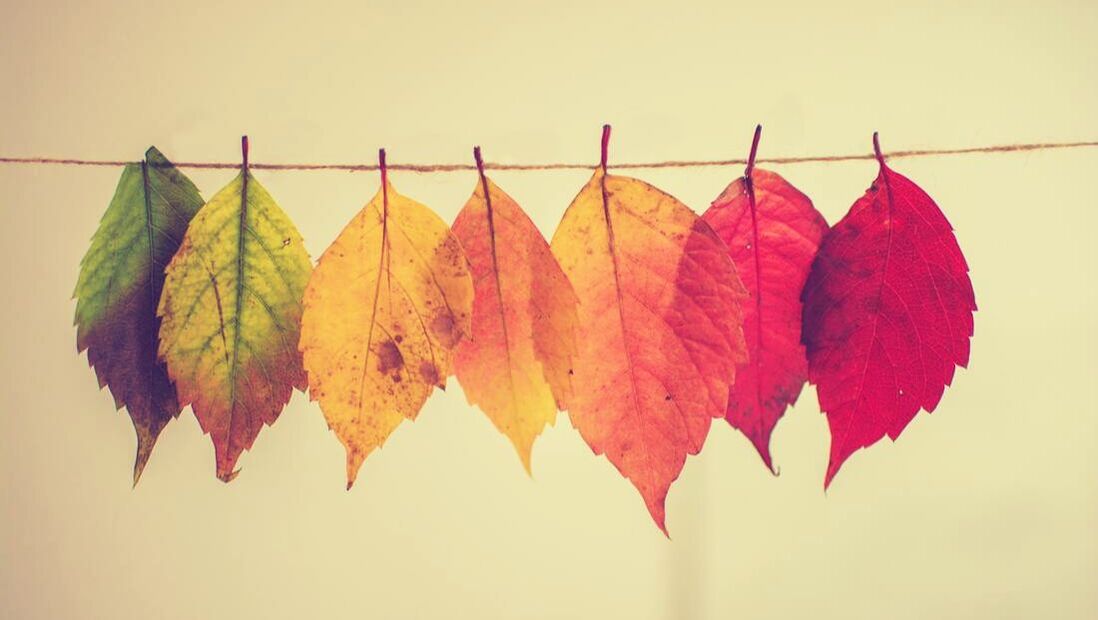
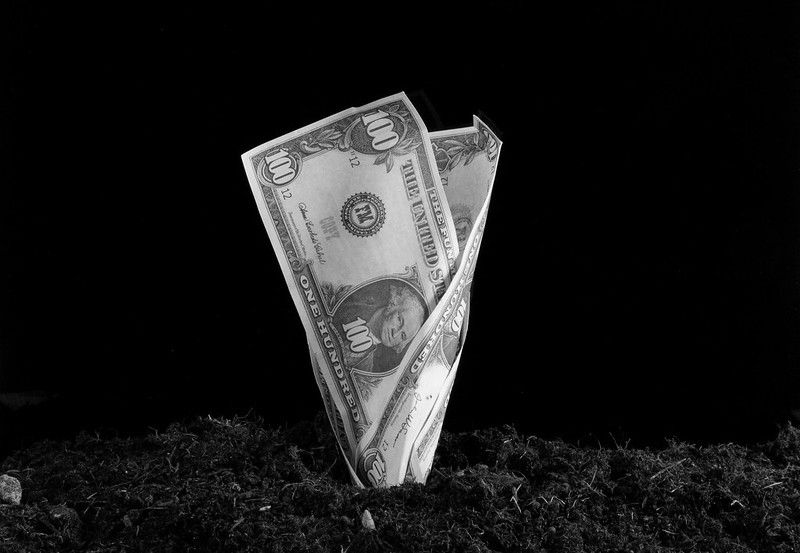
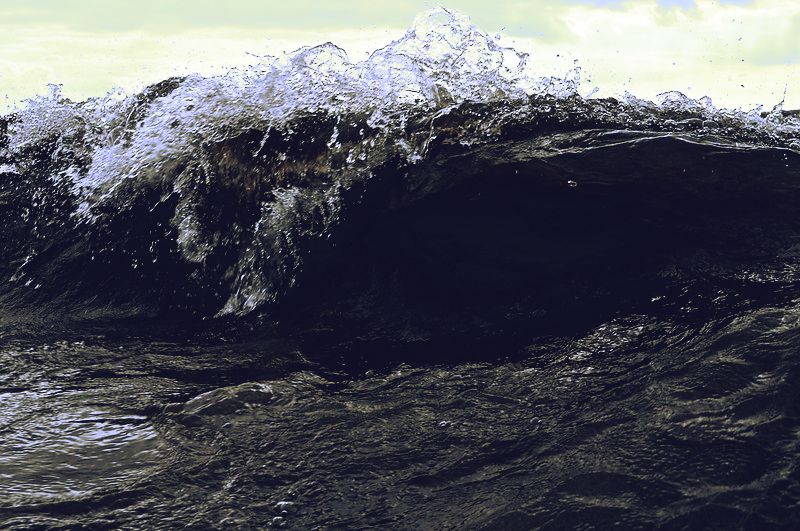
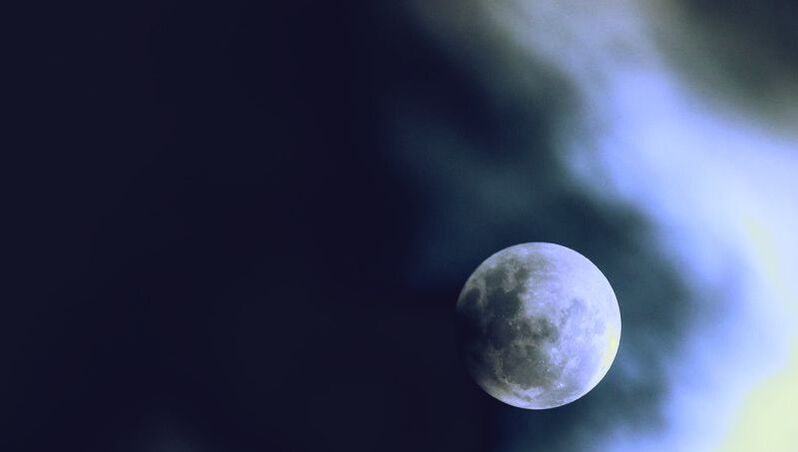

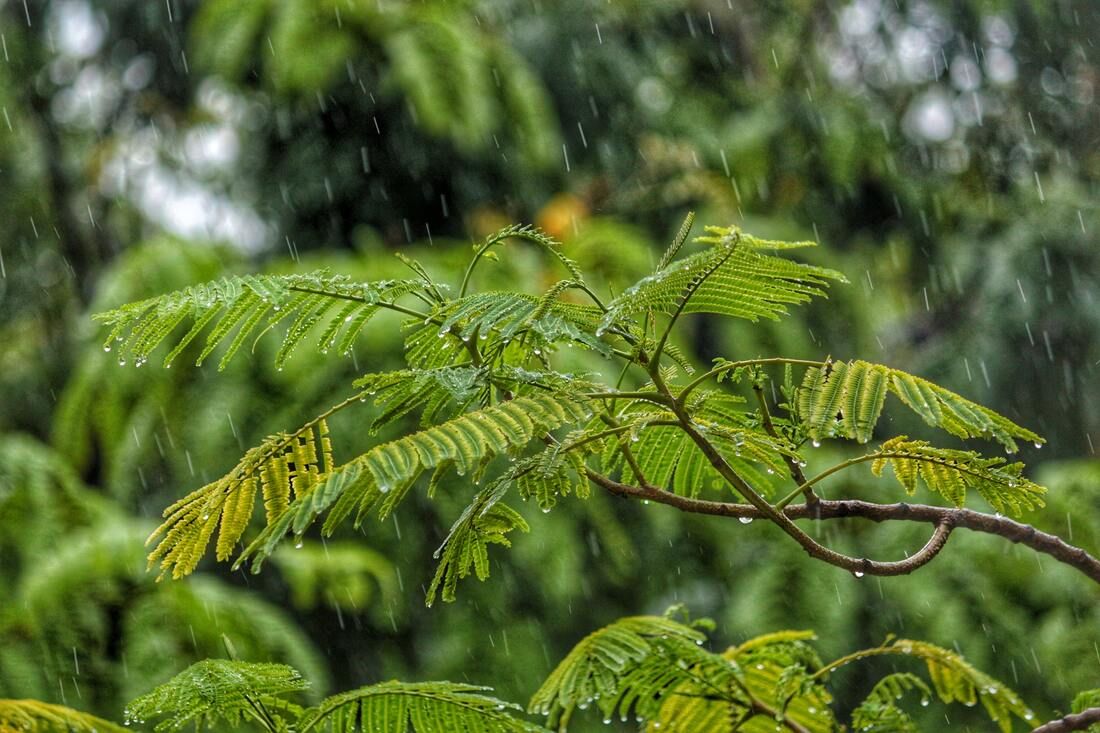

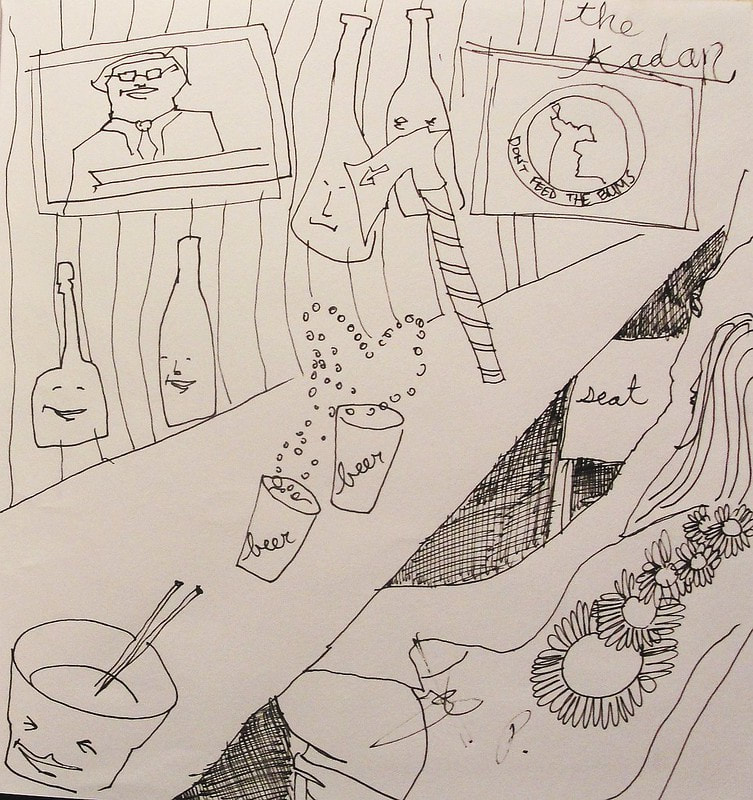
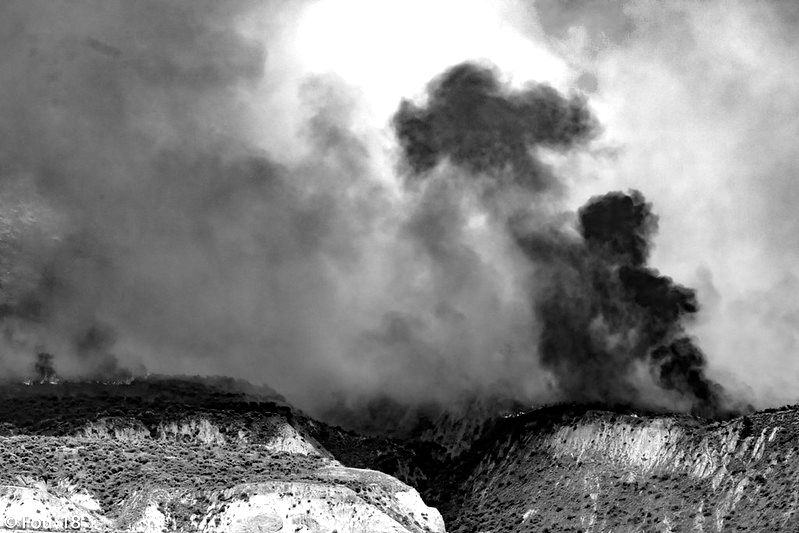
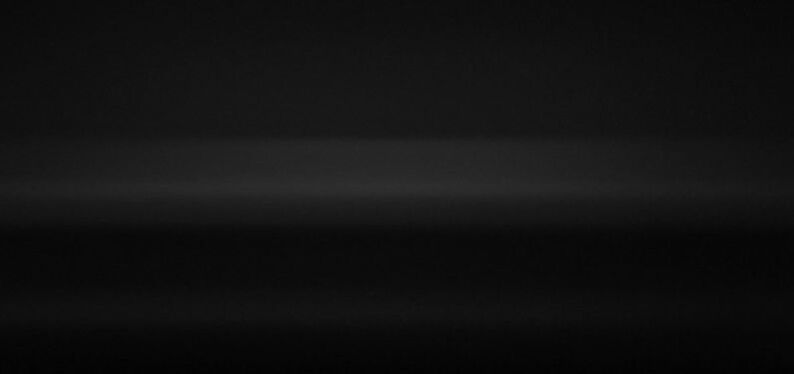
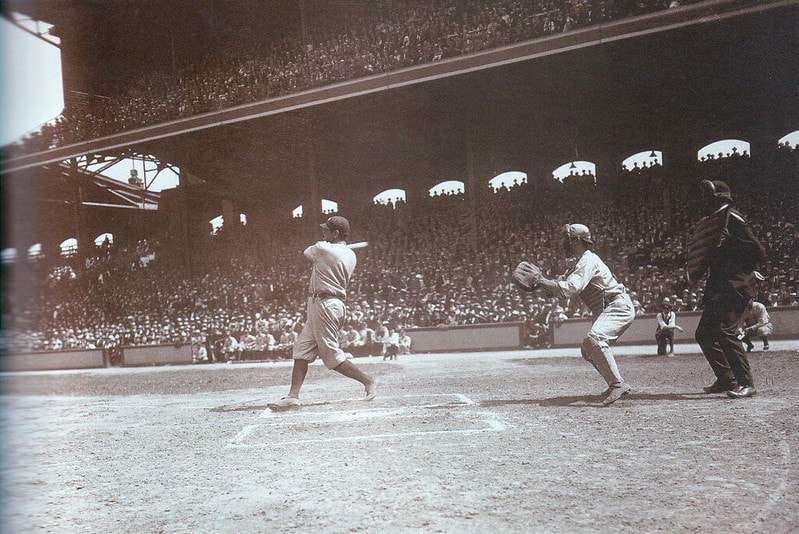
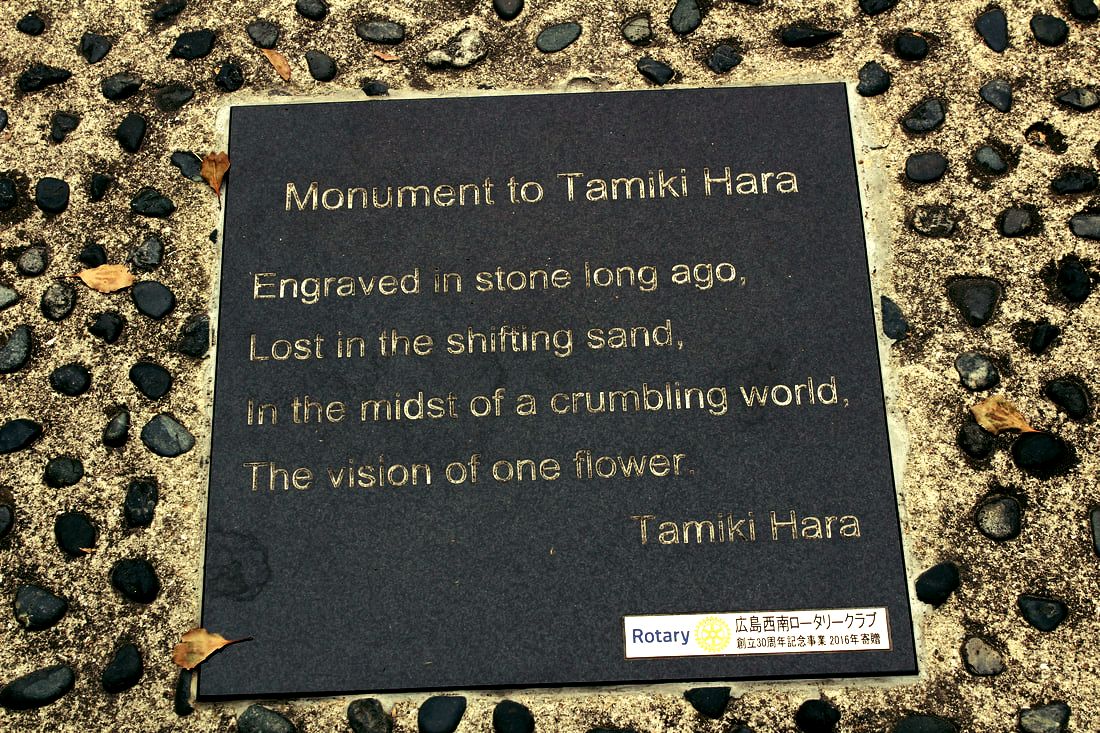
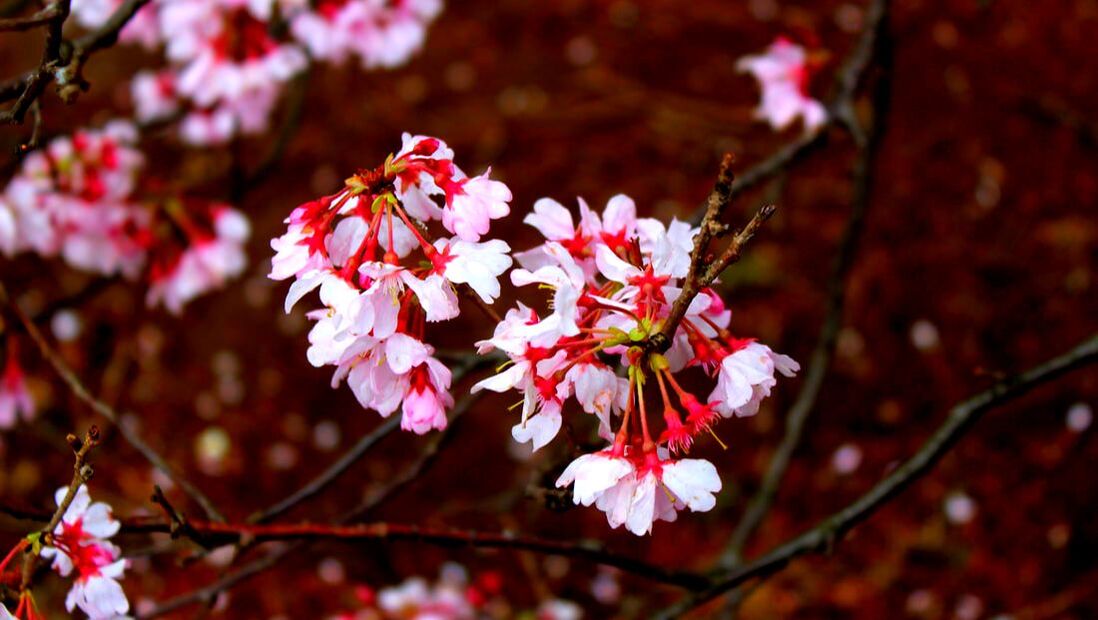
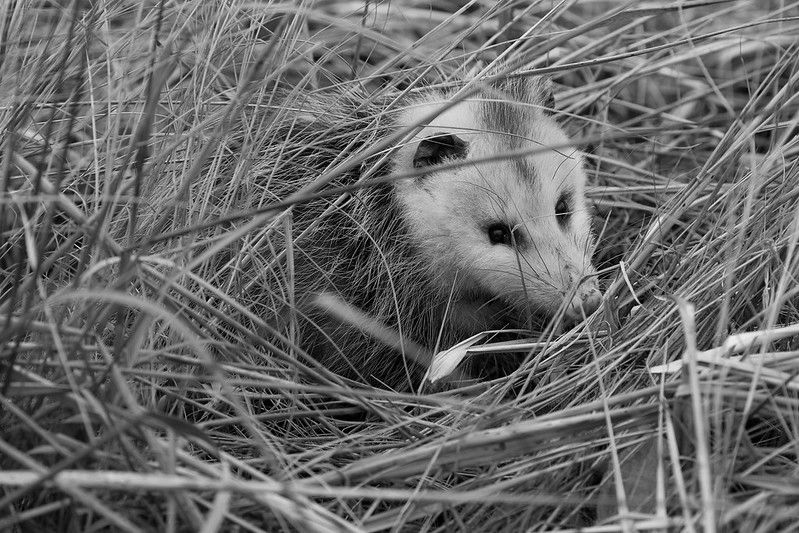

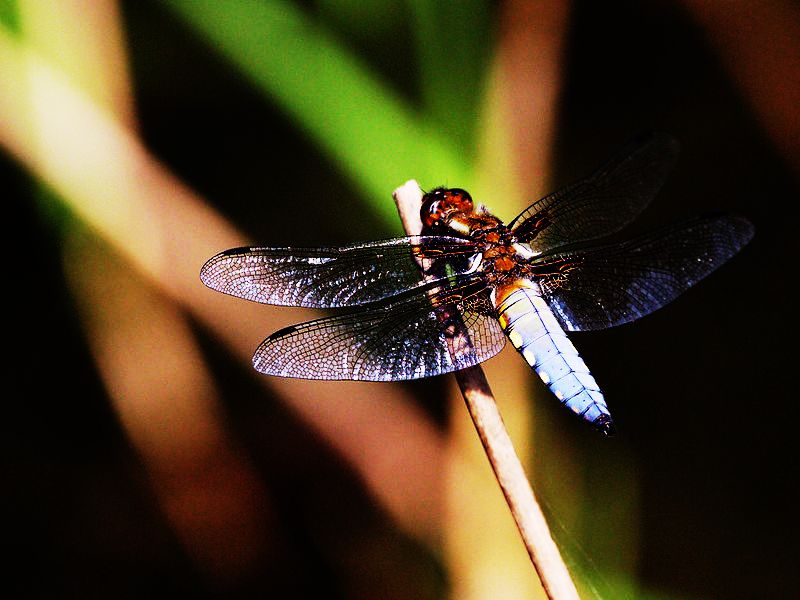
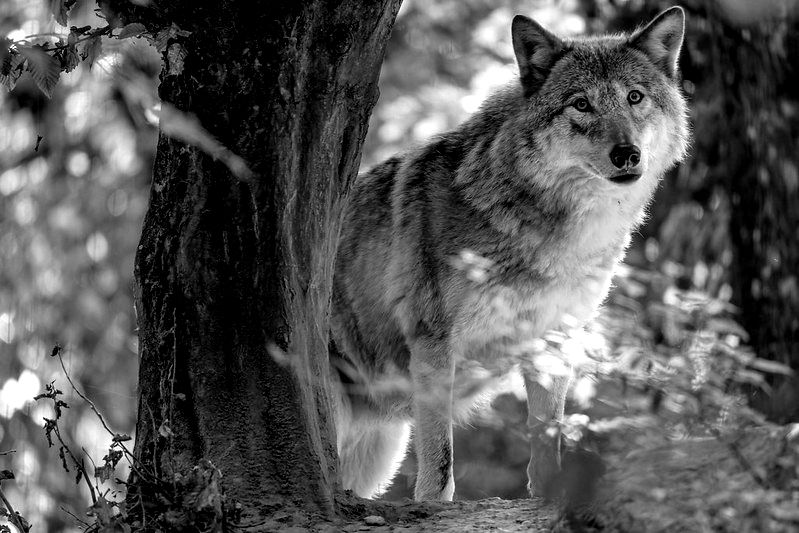
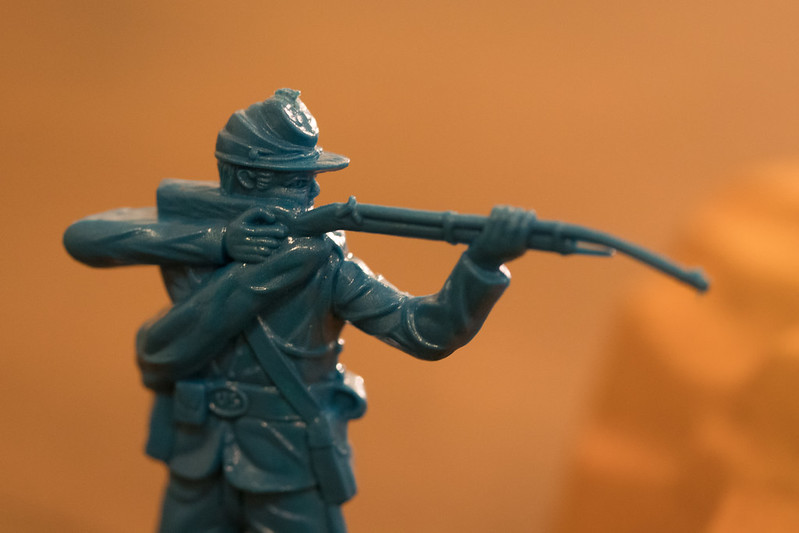

 RSS Feed
RSS Feed